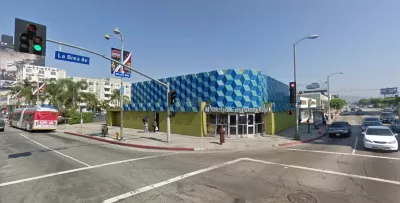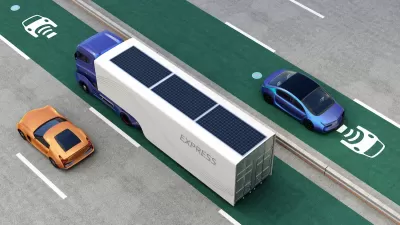During a time when there are apps and websites for just about everything, some transit agencies are turning to storefronts to better serve their customers.

It may not be as widely known as Melrose Avenue or Rodeo Drive but La Brea Avenue holds its own among Los Angeles’ trendy streets. Until recently, an arresting storefront of shimmering turquoise and teal tiles stood at the intersection of Wilshire Boulevard amid the artisanal pizza restaurants, mixology bars and vintage clothing shops.’’
Despite appearances, it didn’t sell Japanese denim, nor did it spin drum-and-bass until 2 a.m. Far more humbly, it sold transit passes, collected lost items, and dispensed — for free — information about the nation’s second-largest transit agency.
The center was recently relocated to make way for Los Angeles Metro’s subway extension, but when it was open, it set an important tone of the agency’s relationship with the riding public.
Transit agencies, whether they run buses, trains, ferries, bike share systems, or other mediums of mobility, exist in a state of paradox. While their vehicles, signage and street furniture is highly visible and they serve millions of customers each year, many lack a physical connection with their customers. But some transit providers are working to change that.
During a time when there are apps and websites for just about everything — including purchasing train tickets and viewing schedules — some transit agencies are turning to storefronts to better serve their customers.
“What it really provides is for somebody to be able to walk in and get immediate service. I think it satisfies an immediate need,” said Adrian Paniagua, supervisor of San Diego Metropolitan Transit System’s customer service center. “I think the philosophy here is it’s an essential component to overall customer satisfaction. We have a 90-plus percent satisfaction rate with our customers. We want to keep it that way.”
FULL STORY: Storefront Service Centers Put Transit Agencies on Solid Footing

Alabama: Trump Terminates Settlements for Black Communities Harmed By Raw Sewage
Trump deemed the landmark civil rights agreement “illegal DEI and environmental justice policy.”

Study: Maui’s Plan to Convert Vacation Rentals to Long-Term Housing Could Cause Nearly $1 Billion Economic Loss
The plan would reduce visitor accommodation by 25% resulting in 1,900 jobs lost.

Planetizen Federal Action Tracker
A weekly monitor of how Trump’s orders and actions are impacting planners and planning in America.

Waymo Gets Permission to Map SF’s Market Street
If allowed to operate on the traffic-restricted street, Waymo’s autonomous taxis would have a leg up over ride-hailing competitors — and counter the city’s efforts to grow bike and pedestrian on the thoroughfare.

Parklet Symposium Highlights the Success of Shared Spaces
Parklets got a boost during the Covid-19 pandemic, when the concept was translated to outdoor dining programs that offered restaurants a lifeline during the shutdown.

Federal Homelessness Agency Places Entire Staff on Leave
The U.S. Interagency Council on Homelessness is the only federal agency dedicated to preventing and ending homelessness.
Urban Design for Planners 1: Software Tools
This six-course series explores essential urban design concepts using open source software and equips planners with the tools they need to participate fully in the urban design process.
Planning for Universal Design
Learn the tools for implementing Universal Design in planning regulations.
Caltrans
Smith Gee Studio
Institute for Housing and Urban Development Studies (IHS)
City of Grandview
Harvard GSD Executive Education
Toledo-Lucas County Plan Commissions
Salt Lake City
NYU Wagner Graduate School of Public Service




























